US Senator Says Vienna Talks Fundamentally Flawed
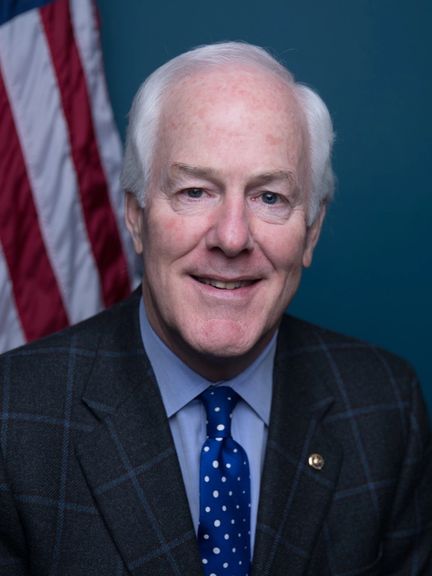
Republican Senator John Cornyn tells Iran International that he thinks the Vienna negotiations to revive the 2015 nuclear deal is “fundamentally flawed”.

Republican Senator John Cornyn tells Iran International that he thinks the Vienna negotiations to revive the 2015 nuclear deal is “fundamentally flawed”.
He said on Wednesday that “any negotiation that stops short of preventing Iran from getting a nuclear weapon is fundamentally flawed.”
He added, "They haven't been talking to people in Israel or other allies of US that are worried about Iranian regime's threat both in terms of financing state terror as well as prospect of getting a nuke weapon and using that against our allies in Mideast".
He expressed doubt that the talks will lead to any tangible results, saying, “I don't have any confidence in the process right now”.
The nuclear talks have stalled mainly because of Iran’s demand for the US to remove the Revolutionary Guard (IRGC) from its terrorism list (FTO) and the recent missile attacks have shed more doubts whether President Joe Biden’s administration would take such a step.
The indirect US-Iran nuclear talks were close to an agreement in early March before last-minute Russian demands for sweeping guarantees that would have hollowed out sanctions imposed following its invasion of Ukraine derailed the talks.
Russia has since appeared to have narrowed its demands to cover only work linked to the nuclear deal, leaving a small number of issues to be resolved between Washington and Tehran, diplomats say.
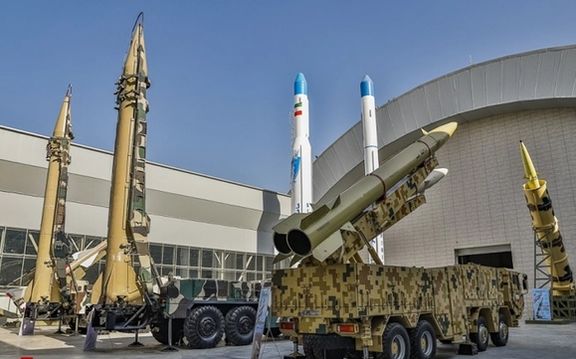
The United States Wednesday imposed sanctions on an Iran-based man and his firms it accused of helping Tehran obtain materials for its ballistic missile program.
Washington’s actions came as one year of nuclear talks have not borne final results and after missile attacks by suspected Iranian-backed proxies on countries in the region.
In a statement the US Treasury Department said it acted after Iran's missile attack on Erbil in Iraq and an "Iranian enabled" Houthi missile attack against a Saudi Aramco facility this month, as well as other missile attacks by Iranian proxies against Saudi Arabia and the United Arab Emirates.
US National security Advisor Jake Sullivan blamed Iran last week for supplying weapons in the large-scale Houthi I attack on Saudi oil installation.
The nuclear talks have stalled mainly because of Iran’s demand for the US to remove the Revolutionary Guard (IRGC) from its terrorism list (FTO) and the recent missile attacks have shed more doubts whether President Joe Biden’s administration would take such a step.
The Treasury said it slapped sanctions on Iranian procurement agent Mohammad Ali Hosseini and a network of companies it accused him of using to procure ballistic missile propellant and related materials in support of Iran’s missile program.
The Treasury accused him of procuring materials for the Islamic Revolutionary Guard Corps (IRGC) unit responsible for research and development of ballistic missiles. Iran's IRGC is subject to U.S. sanctions.
A US official, who spoke on condition of anonymity, said the sanctions were not related to efforts to revive the nuclear deal under which Iran had limited its nuclear program to make it harder to develop a nuclear bomb - an ambition it denies - in return for relief from global economic sanctions.
"While the United States continues to seek Iran’s return to full compliance with the Joint Comprehensive Plan of Action, we will not hesitate to target those who support Iran’s ballistic missile program," the Treasury's Under Secretary for Terrorism and Financial Intelligence Brian Nelson said in the statement.
Iran conducted a March 13 attack on Erbil, the capital of Iraq's northern Kurdish region, a rare publicly declared assault by Iran's Islamic Revolutionary Guards Corps (IRGC), and a missile attack by Yemen's Iran-aligned Houthis hit a Saudi Aramco facility on March 25.
A nascent plan for Iraq's Kurdistan region to supply gas to Turkey and Europe - with Israeli help - is part of what angered Iran into striking Erbil with ballistic missiles this month, Iraqi and Turkish officials say.
The Houthis said they launched attacks on Saudi energy facilities on Friday and the Saudi-led coalition said oil giant Aramco's petroleum products distribution station in Jeddah was hit, causing a fire in two storage tanks but no casualties.
The indirect US-Iran nuclear talks were close to an agreement in early March before last-minute Russian demands for sweeping guarantees that would have hollowed out sanctions imposed following its invasion of Ukraine derailed the talks.
Russia has since appeared to have narrowed its demands to cover only work linked to the nuclear deal, leaving a small number of issues to be resolved between Washington and Tehran, diplomats say.
Reporting by Reuters
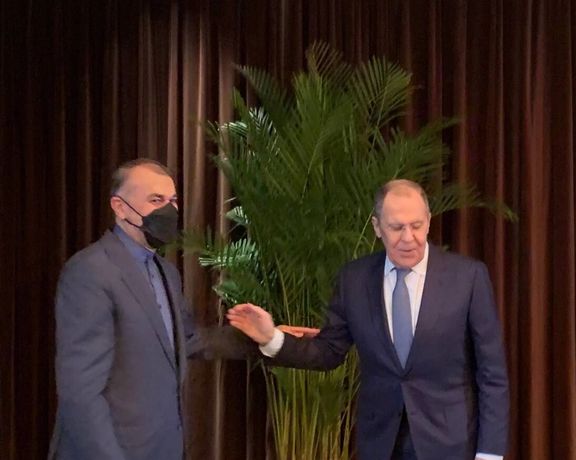
Russian Foreign Minister Sergei Lavrov said Wednesday Moscow would work with Iran to take steps to circumvent Western sanctions, the RIA news agency reported.
Lavrov's remarks came after he met with Iran's foreign minister Hossein Amir-Abdollahian in China on the sidelines of a multilateral meeting between Afghanistan's neighbors.
It was not immediately clear if he was referring to sanctions against Russia exclusively, or also those against Iran.
Lavrov's remark could throw another stumbling block to a nuclear agreement between Iran and the West to revive the Obama-era JCPOA.
Moscow made demands in mid-March to have its relations with Iran exempted from western sanctions imposed after the invasion of Ukraine. At the time, the demand complicated efforts to achieve a deal after 11 months of talks in Vienna.
In addition, Tehran wants the United States to remove its Revolutionary Guard (IRGC) from its list of terrorist groups. Washington has not accepted the demand but has reportedly said it would be contingent on Iran limiting its aggressive actions in the Middle East.
Iran has been highlighting its policy of relying on Russia and China for trade in the face of US sanctions. Iran’s envoy to Russia said last week the two countries are in talks over the possible recognition of the Russian payment system MIR. Iran is cur off from the international banking system SWIFT. Many Russia banks have also been sanctioned.
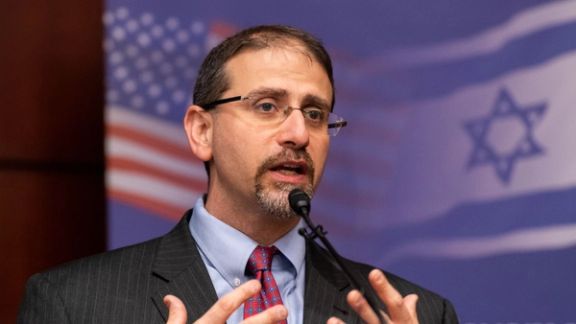
A veteran diplomat who was a former US envoy to Israel has quitted Biden's team at the nuclear talks to restore the 2015 deal with Iran.
According to Haaretz on Tuesday, Dan Shapiro -- who served as US ambassador to Israel under the Obama administration -- left Iran team after only seven months as a special government employee and part-time senior adviser.
Shapiro was known as the "Israel whisperer" in Special Envoy for Iran Rob Malley's team due to his deep understanding of the US-Israel relationship, and is expected to join Washington-based think tank Atlantic Council.
Richard Nephew and two other leading negotiators stepped down in recent months due to frustrations with the administration’s Iran policy.
Nephew, who is regarded as the architect of Washington’s sanctions on Iran and was serving as Malley’s deputy until early December, published a series of tweets mid-February to elaborate on the reasons behind his move.
Nephew said he stepped down from his post “due to a sincere difference of opinion concerning policy”, adding that “Although my views and record have been and continue to be mischaracterized by quite a few people, I do not intend to convey any further details at this time or in public, given the ongoing nature of discussions in Vienna”.
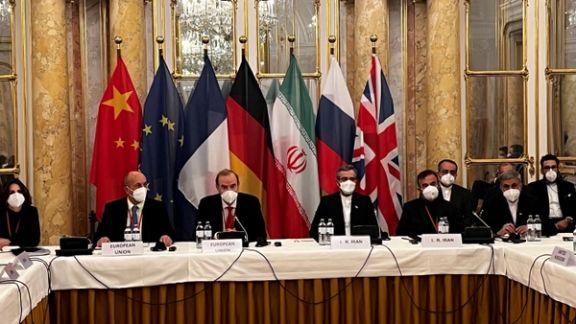
Another member of President Joe Biden’s Iran negotiating team has resigned amid growing criticism at home and abroad of an impending nuclear deal with Tehran.
Dan Shapiro, who served as US ambassador to Israel during the Obama administration and is a specialist on US Middle East policy, has left the Iran team led by Special Envoy Rob Malley after just seven months, Haaretz reported on Tuesday.
This follows the departure of sanctions expert Richard Nephew in December and two other members of Malley’s team. Although Shapiro has not expressed any misgivings about the way the nuclear talks have been handled in Vienna, Nephew in February disclosed in a series of tweets that he stepped down from his post “due to a sincere difference of opinion concerning policy.”
On Monday, Senator Chris Coons, a close supporter of President Joe Biden told Iran International he was apprehensive over the possibility that the US might remove Iran’s Revolutionary Guard from its list of Foreign Terrorist Organization (FTO). He also expressed deep misgivings about Iran’s regime, saying that its behavior on several fronts has become worse in the last two years.
Senior Republican Senator Lindsey Graham told Jewish insider on Monday that an Israeli strike on Iran appeared to be the most likely way to stop Iran from acquiring nuclear weapons. He ruled out that the Islamic Republic’s Supreme Leader Ali Khamenei would have a “change of heart” and using sanctions, although to an extent effective, could not guarantee the same outcome.
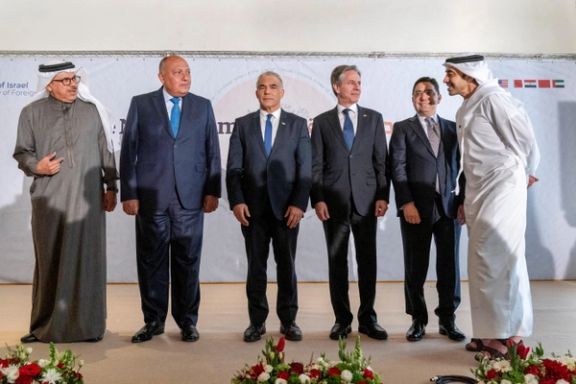
“If you don’t [understand] that, you’re making a huge mistake,” Graham told Jewish Insider. “This is never going to end short of a nuclear weapon unless somebody stops them.”
The Senator explained that he is putting together legislation that would require a close watch on Iran’s nuclear activities and a report to US Congress every 120 days about any “weaponization efforts, missile technology, proliferation and violations of International Atomic Energy Agency inspection regime.”
Graham maintained that if any Iranian deviation toward weaponization is observed, the White House would be required to come up with a plan to stop it.
Despite the recent ‘Negev Summit’ where Secretary of State Antony Blinken tried to show a mood of unity with Israel and Arab states that have normalized ties with Israel, deep concerns regarding the Biden Administration’s Middle East policies persist.
In an opinion piece published by the Jerusalem Post on Tuesday, Mohammed Alyahya, a Saudi researcher with the Hudson Institute argued that there is a serious “crisis” between Washington and Riyadh, smacking of a “divorce”.
Alyahya argued that since former president Barack Obama agreed to the 2015 Iran nuclear deal, the JCPOA, it became clear to Saudis that the US was abandoning its 70-year policy of protecting allies in the region. He agreed to a flawed deal in exchange for releasing billions of dollars to Iran’s Revolutionary Guards who arm militants around the region.
President Biden’s pursuit of renewing the JCPOA, which Donald Trump abandoned in 2018, is a continuation of the same Obama policy – or worse, Alyahya maintained.
Although his assessment might sound pessimistic, but a large-scale drone and missile attack om Saudi oil installation by Iran-backed Houthi forces past week inevitably reinforces the perception of a weak or indecisive US posture toward the Islamic Republic.
Historically, any threat to Middle East oil production would have solicited a decisive response from Washington – during the Cold War or in the following years. The swift and massive US reaction to Saddam Hussein’s invasion of Kuwait was a solid proof for regional counties.
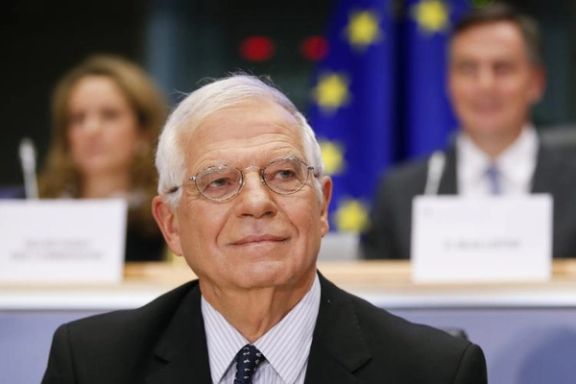
The European Union's top diplomat Josep Borrel says talks to revive the 2015 Iran nuclear deal are stuck by Tehran after a hurdle thrown by Russia was overcome.
"It’d be a shame not to reach some sort of an agreement when we're so near to reaching one,” Borrel told the European Parliament on Monday after returning from his tour in Persian Gulf Arab states.
“But I cannot guarantee that we will reach an agreement", he added.
"It seems that two weeks ago, we almost had it. Then Russia came, Russia was obstructing" because Moscow was looking for leverage over the West in its ongoing war in Ukraine, Borrell told EU lawmakers in Brussels.
According to the EU top diplomat, Russia wanted to prevent sanctions on Iranian oil being lifted "because if Iran started producing oil there’ll be more supply in markets and that's not in the interest of Russia".
The landmark agreement that Tehran signed with the United States, Britain, France, Germany, Russia, and China in 2015 allowed for the easing of sanctions against Iran in return for curbs on the country’s nuclear program.
But then-President Donald Trump unilaterally pulled the United States out of the deal in 2018, and started reimposing crippling economic sanctions against Iran, while Tehran began rolling back on most of its commitments under the accord.
Over the past months, negotiations have taken place in Vienna to bring back the pact, with Borrell's deputy Enrique Mora coordinating the talks.
The volatile oil markets have been closely watching progress of the Vienna talks as the lifting of restrictions on Iranian crude export could help counterbalance disruptions caused by the Russian invasion of Ukraine.
But now that Moscow has lifted its objection, other demands have been raised that aren’t part of the nuclear deal, such as the status of Iran's Islamic Revolutionary Guards Corps (IRGC), Borrell said.
Tehran has demanded that the United States remove the IRGC from its list of Foreign Terrorist Organizations (FTOs).
Borrell's downbeat assessment of the talks in the Austrian capital comes three days after he announced that the parties involved could reach an agreement to restore the nuclear deal in "a matter of days".
On March 11, the EU official said the final text of an agreement was "essentially ready and on the table."
Speaking on March 5, Russian Foreign Minister Sergei Lavrov said that sanctions imposed on Moscow had created "problems from the point of view of Russia's interests" regarding the restoration of the Iran nuclear accord, formally known as the Joint Comprehensive Plan of Action (JCPOA).
Such sanctions could complicate Moscow's involvement in Tehran's civilian nuclear program and trade with Iran, including arms sales, said Lavrov, who demanded "written guarantees" from the United States.
But Moscow apparently backed off later when Washington and its European allies refused to budge and limited Russian demands to JCPOA-related cooperation, something that has apparently been guaranteed in the text of the agreement being negotiated.
Russia is widely expected to play a central role in implementing a restored JCPOA, especially in removing Iran's stocks of enriched uranium exceeding limits set by the deal, a task it undertook when the agreement was reached in 2015.
The Biden administration has apparently agreed with a Russian demand that would involve lucrative deals for Moscow to expand Tehran’s civilian nuclear program, including the construction of two additional nuclear reactors at the Bushehr power plant.
Borrell said on Monday that his team were "shuttling between Tehran, Vienna, Washington trying to find a solution."
Mora travelled to Tehran over the weekend and met with Iran’s top negotiator Ali Bagheri-Kani and Foreign Minister Hossein Amir-Abdollahian in a bid to close the “remaining gaps”.
Iranian officials insist that Tehran is willing to conclude the talks and sign "a good, strong, and lasting agreement" if the US is "realistic" and makes "a political decision".
Last week, a spokesman for the US State Department a possible deal with Iran could be close, while also warning it was "neither imminent nor is it certain".
Bipartisan opposition has been growing in Washington against the Vienna talks and the prospect of removing the IRGC from the U.S. terrorism list.